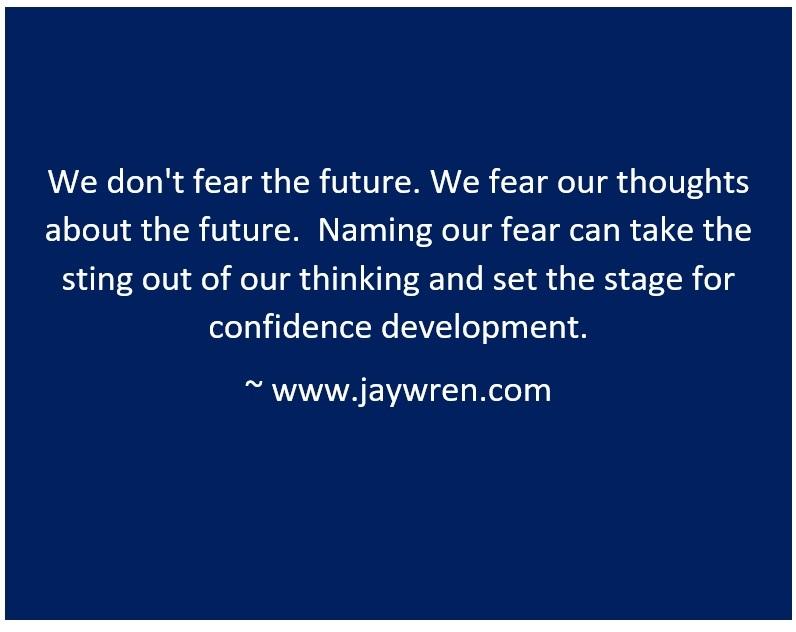Confidence Development: Stress loves mental clutter. As the pile of clutter grows in a person’s mind, stress becomes more powerful.
The clutter creates confusion and undermines our ability for confidence development. Instead of planning for upcoming events, we worry about upcoming events. The growing stress robs our energy. Lower energy leads to inaction, procrastination. Inaction creates greater mental clutter.
Mental Clutter>>Confusion>>Doubt>>Stress>>Fatigue>>Less Action>>Greater Mental Clutter>>Greater Confusion>>Greater Doubt>>Higher Stress>>Greater Fatigue>>More Procrastination>>Mental Clutter. So goes the cycle.
Writing Can Open Our Mind to Greater Confidence Development
When I suffer from worry, I often write about it. When I am feeling stressed about something, writing takes the power from my anxiety. Sometimes, just putting something on my calendar helps clear my mind. I name the problem and create a to-do list for the solution.
For example, I might write, “I am afraid that I will miss my flight.” Then I can write a solution. “I will make my flight, because I will go to the airport early and relax until my flight begins boarding.”
Case Study
A more complex example is how one of my friends prepares lectures he gives to large audiences. Public speaking is stressful for nearly everyone. My friend is an expert in his field. The first time he gave one of his lectures, just thinking about the presentation made him nervous. As he spent more time thinking about speaking to an audience, he became more nervous. Confidence development was lost.
The Solution
As he prepared for his speech, he found that writing about his feelings had powerful results. He wrote, “I am nervous about giving this presentation to this group.”
Then he outlined what he wanted to say. It occurred to him that he was not the subject of the presentation. His knowledge was the subject. He began to see his audience as people who needed the information that he could give them. Additionally, he saw how his presentation could help his audience become more successful in their professions through learning what he had to say.
He focused on writing out the details that would benefit his audience the most. As he wrote, he gained confidence. He saw the value in his knowledge.
He has given the lectures for over a decade. As new developments occur in his field, he updates his presentations. His ideas are current, relevant. New audiences need his knowledge as much as the first audiences did. He keeps his mind clear by sweeping out the clutter by naming his fear and focusing on the solutions he is giving his audience. He has learned the tools of confidence development.



